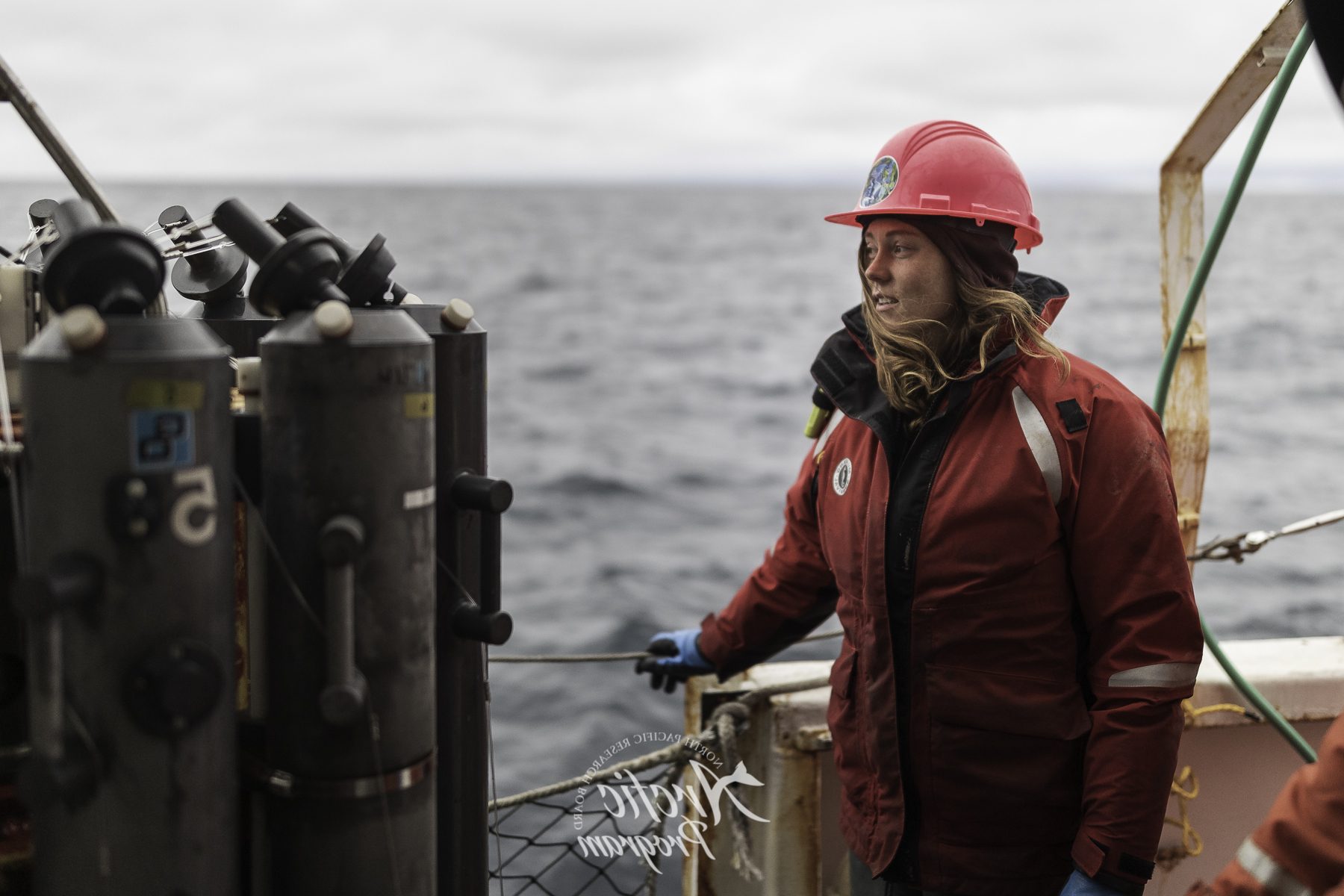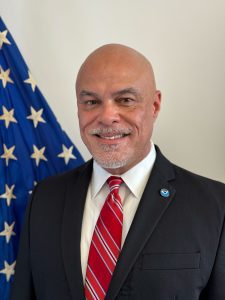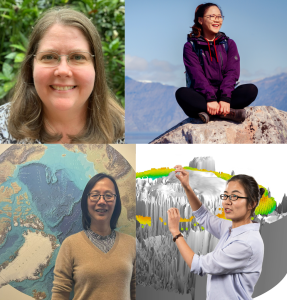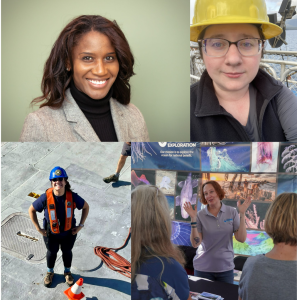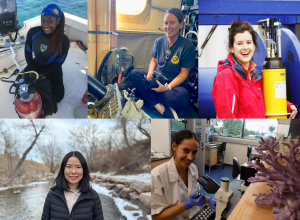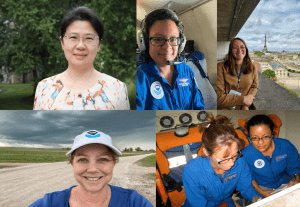NOAA Corps officer LTJG Sarah Donohoe is a Scientific Support Engineer for NOAA Pacific Marine Environmental Lab's Ecosystem Fisheries-Oceanography Coordinated Investigation (EcoFOCI) group. In her role, she helps develop new oceanographic instrumentation and travels to the Bering and Chukchi seas to deploy and recover oceanographic moorings and collect key samples – like nutrients and chlorophyll – on conductivity-temperature-depth (CTD) casts.
What drew you to your current career or field?
Three things: curiosity, adventure, and impact.
Curiosity: I had the privilege of growing up in the wilderness-rich coastal city of Juneau, Alaska. I believe the nearness to nature and the educational opportunities that came with it sparked my curiosity in research biology.
Adventure: I learned about the NOAA Corps at a Hollings Scholarship orientation; the romance and adventure of working out at sea were too enticing for me to pass up!
Impact: I love knowing that I contribute to the body of knowledge that allows NOAA scientists to make impactful management decisions that can promote healthy oceans and combat climate change.
What were some of the challenges you faced this year? Have you been able to adapt and if so, how?
There are many NOAA missions that simply cannot be done by remote telework. In the midst of the pandemic, this forces us to assess what is “essential” and which in-person missions continue. Missions like recovering years-worth of oceanographic data from the Bering and Chukchi seas are essential. Moorings, and their valuable data, could be lost if neglected. In mooring field work especially, there have always been risks. Thankfully, we know how to manage those familiar risks from decades of experience.
Managing the unfamiliar risk of the Covid-19 pandemic has been exhausting. It takes significantly longer to prepare for field work with Covid-mitigation plans. The value of the data that is recovered is worth the effort, especially because there have been fewer missions in this last year, making certain ship-based measurements in the Bering and Chukchi sparse. Once out in the field crews are operating with a bare-bones team, meaning one person is doing work that normally three or more people would be doing.
The crews of our NOAA research vessels have met monumental challenges with grit and perseverance. Make no mistake, adapting to these new challenges has not been easy. I've personally struggled with feeling burned out. To mitigate burn-out, I find I have to work intentionally to take care of myself and focus on gratitude. Small things like enjoying a cup of tea or taking a few quiet moments to paint a watercolor help ground me. Some days I simply acknowledge feelings of burnout, and then get on with my day and do the best I can.
What experience or advice helps you when you’re faced with setbacks?
I faced a major setback earlier this year when I learned that a design decision I had made on a float development project caused the float to ride poorly in choppy waves, and resulted in less satellite-transmitted data recovered from the float. What helped me move past my mistake was hearing stories from others who experienced failures and setbacks. It helped me recognize that science and research is an iterative, developmental process.
In our pursuit of successful results it's easy to forget that it takes time and failures before a project is successful. Nothing new works perfectly the first time. Innovation means failure. We mustn't be afraid to fail. In reality, it's a prerequisite to research success! I want to encourage everyone to talk about failures so that we can learn from them and allow others to learn from them as well. Finally, when facing a setback, I find comfort in calling my Mom, who always reminds me not to wallow in despair and that I was made for joy.
Has your idea or definition of success changed in the past year?
My definition of success has absolutely changed! I've been fortunate to be able to continue working both in-person and remotely. In the past year, coping with Covid-19 has meant spending time forming Covid-mitigation plans, adding complexity to day-to-day tasks, and carrying stress from watching the news.
All this has left me with less time and mental energy to devote to work tasks. A coworker advised me to choose just one or two most important things to get done each day. When I accomplish that priority task I've laid out for myself, I consider that day a success. While everyone's personal definition of success may be changing in response to Covid-19, it's also highlighting our need to balance mental health with work.
What do you enjoy most about your work?
For me, sitting at a computer is a necessary evil. I enjoy work most when I am engaged with my mind and body! Luckily, my position offers me plenty of opportunities for this. Whether it is assembling a float at a workbench in the lab or collecting samples from Niskin bottles, I appreciate the moments I get to work with my hands.
What do you hope to accomplish in the future? What do you hope the future for women in science looks like?
In the future, I see myself working on a team that is tackling climate change solutions, as well as raising a family. My hopes for the future are built from my past. My mother was in the first class of women to graduate from the U.S. Coast Guard Academy and as a “first” did the brutally hard work of breaking the glass ceiling, with lots of humor and grace! I grew up watching her work hard to fit the workplace mold that was made by and for men. I pray that my generation can re-work the mold so that women in previously male-dominated fields are not just present, but feel a sense of true belonging.
My hopes for the future are that women of color and from indigenous backgrounds flourish in technical and decision-making roles in the sciences. It looks like a flexible mold that can adjust to each person’s unique strengths. As a popular proverb comparing bamboo to an oak points out, flexibility is strength.
What advice would you give to women who are starting out in their careers?
It's common to bump into situations where you quickly realize “I don't know how to do this!” Relax. This is true for everyone. Early-career scientists ride steep learning curves. My best advice is, do some cursory research and problem solving, then reach out for help. Don't get sucked down endless rabbit holes attempting to solve the world's problems on your own. Recognize that you aren't expected to know everything, and ask for help.
